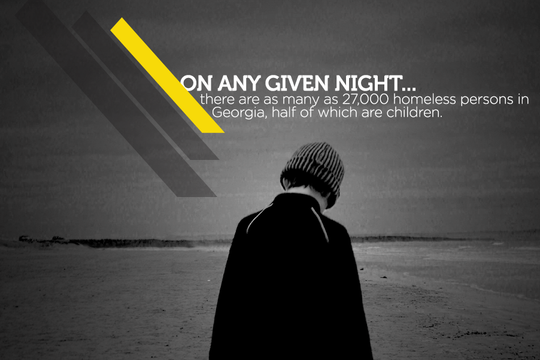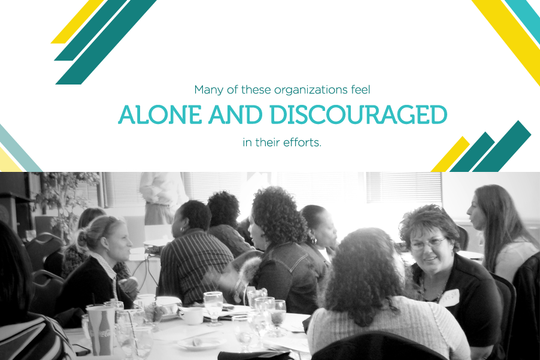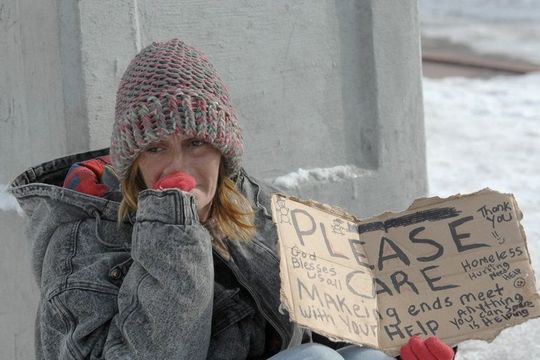Georgia Alliance to End Homelessness
Working to end homelessness through education, connection, and action

Meeting needs, connecting providers, and building continuums of care since 1989.
Homeless Individuals Receiving Housing
Resources Referrals Provided to At-Risk Georgians
Critical Transportation Services Extended to Those In Need
The Georgia Alliance to End Homelessness is a state-wide network committed to fostering strategic initiatives to build a collaborative response to the needs of homeless persons in Georgia. We are a convener and catalyst of individuals, emergency service providers, nonprofits, faith-based organizations, community-based collaboratives, and quasi-governmental entities who work to address the needs of Georgia’s most vulnerable persons.
The Provider Network
CONNECTING PERSONS AT RISK TO FREE SERVICE PROVIDERS THROUGHOUT GEORGIA
This free service provides homeless service providers and persons at risk a valuable tool to find resources. This convenient tool allows users to search a database of over 1,100 homeless service providers throughout the state.
JOIN US FOR 57TH GCAA ANNUAL T/TA CONFERENCE
JULY 15 - 18, 2025 | HYATT REGENCY | SAVANNAH, GA
GAEH is excited to partner with the Georgia Community Action for this can't miss event! Join us for a unique track of GAEH workshops, fellowship and festivities with our strategic partners, and more! Experience the unparalleled charm and captivating beauty of Savannah, Georgia as we welcome you to the extraordinary 56th GCAA Annual Training and Technical Assistance Conference! Prepare to be enchanted by the enchanting ambiance of this historic city, while we come together to commemorate our glorious past and forge a path towards a promising future. Join us in this remarkable gathering as we celebrate our achievements, exchange invaluable knowledge, and lay the foundation for a prosperous tomorrow.
Membership
Join us in our fight to end homelessness in Georgia once and for all.
We invite you to consider membership in the Georgia Alliance to End Homelessness because homelessness is far more complex than an individual's choices. A membership grants you invaluable networking opportunities and resources to confidently navigate the needs of your organizations so you can stay focused on your passion.
Relationships
A membership grants you invaluable networking opportunities. Join your knowledge and efforts with hundreds of other organizations.
Resources
Through membership with GAEH, you’ll gain access to a myriad of tools that enable your organization to fight homelessness.
Research
GAEH provides members with accurate data, breaking statistics, and research relevant to the field of service.
Programs & Resources
Project Promise
Ending Child Homelessness in Georgia
Increasing public awareness, advocating for state and local policies, and improving programs and services to better address the needs of homeless children.
GAP Program
Georgia Always Provides
GAEH's GAP program provides emergency financial assistance in the form of temporary housing and more for those who need one-time relief to reach greater housing stability.
QESST
Quality Enhancement Standards & Support Training
QESST is an accreditation process that encourages an emphasis on accountability, helping organizations to build capacity that meets the unique needs of under-served individuals.
Homelessness In Georgia
Did you know that the average age of a homeless person is 9 years old?
And on any given night in Georgia, there are more than 26,414 children, women and men, with no place to call home.

Children and Youth
Youth homelessness is disturbingly common. Although the prevalence of youth homelessness is difficult to measure, researchers estimate that about 5 to 7.7 percent of youth experience homelessness.

Chronic Homelessness
Many chronically homeless people have a serious mental illness like schizophrenia and/or alcohol or drug addiction. Most homeless individuals have been in treatment programs, sometimes on dozens of occasions.

Domestic Violence
DV victims have long and short-term housing needs that must be met so that they do not need to choose between staying with their abuser and sleeping on the street.



